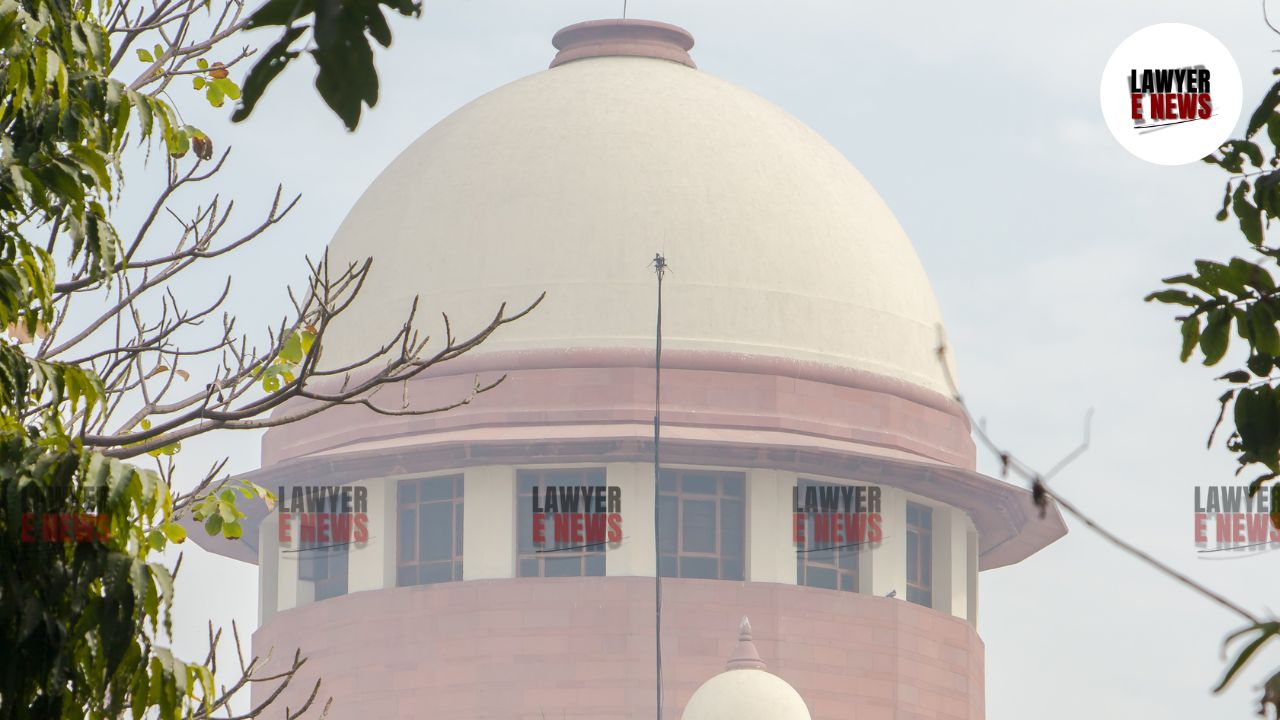-
by Admin
15 February 2026 5:35 AM



Supreme Court of India delivered a significant judgment in Airports Authority of India & Ors. v. Vidyapati Bhagwatpati Tiwari & Anr. (Criminal Appeal No. 874 of 2021), where it quashed criminal proceedings initiated against officials of the Airports Authority of India (AAI). The case revolved around allegations of forgery and fabrication of documents. However, the Supreme Court found that the criminal complaint constituted an abuse of legal process, as the AAI officials had already been discharged under Section 245(2) of the Code of Criminal Procedure (Cr.P.C.), and the actions in question were performed in their official capacities under the Airports Authority of India Act, 1994.
The case originated when the respondent, Vidyapati Bhagwatpati Tiwari, an employee of the AAI, was dismissed following a disciplinary inquiry. After losing his appeal before the Industrial Tribunal and a subsequent writ petition (which was dismissed by the High Court with a cost of Rs. 1 lakh), the respondent filed a Special Leave Petition in the Supreme Court, which was also dismissed. Following these failed attempts, he initiated a criminal complaint alleging forgery and fabrication of documents by AAI officials.
The criminal complaint was filed as a counteraction to the disciplinary proceedings taken against him. Despite a discharge order under Section 245(2) Cr.P.C. by the jurisdictional court, the High Court intervened and set aside the discharge, directing the continuation of the criminal complaint. This led the appellants (AAI officials) to approach the Supreme Court.
The Supreme Court examined several critical legal questions in this case:
Abuse of Process of Law: The appellants argued that the respondent's criminal complaint was filed as retaliation for disciplinary actions taken against him. The Supreme Court agreed, observing that the criminal complaint was an "abuse of process of law," initiated only after the respondent's repeated failures in challenging his dismissal through civil and administrative avenues.
Protection Under Section 33 of the Airports Authority of India Act, 1994: The AAI officials contended that their actions were protected under Section 33 of the Airports Authority of India Act, as they acted in their official capacity without any personal stake in the respondent’s employment. The Court upheld this view, emphasizing that the AAI officials were merely performing statutory duties and that such protection should shield them from criminal liability.
High Court’s Hyper-Technical Approach: The Supreme Court criticized the High Court's approach in focusing on the technicalities of the alleged forgery charges, instead of considering the substantive merits of the case. According to the Supreme Court, the High Court failed to recognize that the appellants had been duly discharged under Section 245(2) Cr.P.C., a provision that permits discharge when no grounds exist to proceed with the case.
In its detailed ruling, the Supreme Court made the following observations:
On Abuse of Legal Process: The Supreme Court noted that the criminal complaint was a "counter-blast" to the disciplinary actions against the respondent. It emphasized that the complaint appeared to be a vindictive attempt to harass the AAI officials following his unsuccessful attempts to challenge his dismissal through administrative and judicial means.
Official Capacity and Immunity Under Section 33: The Court underscored that the appellants were performing their statutory duties under the Airports Authority of India Act. It stated, “The appellants have merely acted in their official capacity and, therefore, they are entitled to protection as provided under Section 33 of the Airports Authority of India Act, 1994.”
High Court’s Error in Setting Aside Discharge Orders: The Supreme Court found fault with the High Court’s decision to set aside the discharge orders issued by both the jurisdictional Magistrate and the Additional Sessions Judge. The Court observed that the High Court’s focus on the technical aspects of the alleged forgery diverted attention from the lack of substantive grounds to continue with the criminal proceedings.
"The High Court, in our considered view, has adopted a hyper-technical approach by going into the offences alleged, instead of considering the matter on merits, especially when the trial Court has exercised power under Section 245(2) of the Cr.P.C.," the Court stated.
The Supreme Court allowed the appeal, set aside the High Court’s order, and quashed the criminal proceedings against the AAI officials. The Court found that there was no substantive basis to continue the criminal complaint and that the High Court’s order had ignored the appellants' statutory protections and the principle of finality in disciplinary proceedings.
This ruling reinforces the principle that criminal complaints should not be used as a tool for retaliation in cases where employees have already exhausted civil or administrative remedies. It also underscores the protection afforded to officials performing statutory duties under Section 33 of the Airports Authority of India Act, 1994. The Supreme Court’s decision in this case sets a precedent against the misuse of legal process, especially in cases where disciplinary actions are challenged through vindictive criminal complaints.
Date of Decision: October 17, 2024
Airports Authority of India & Ors. v. Vidyapati Bhagwatpati Tiwari & Anr.,
